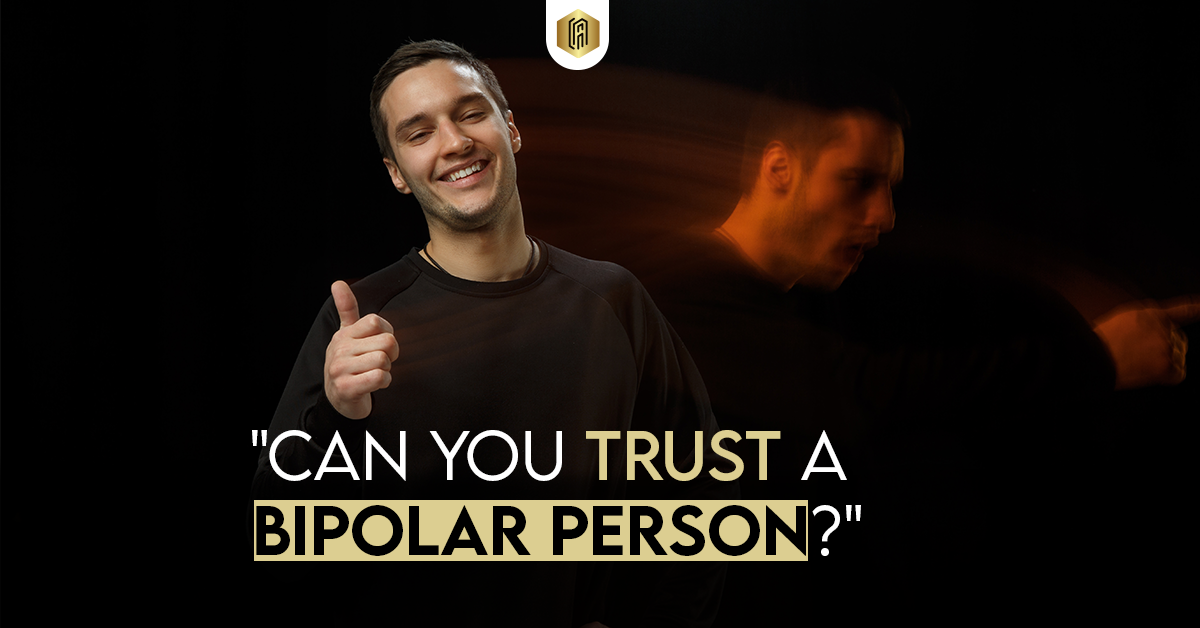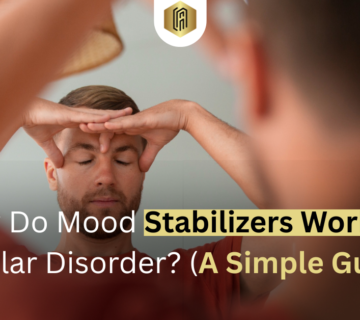Establishing confidence with an individual who has bipolar disorder can be tough. This is especially true in close relationships. Trust is vital for healthy connections. So, you might wonder, “Can you trust a bipolar person?” Understanding bipolar disorder can ease this worry. We’ll explain the condition, tackle myths, and give tips to fix trust issues in these relationships.
Struggling to understand bipolar disorder and its impact on trust? At Ascension Psychiatric Services, we offer expert care. It helps with bipolar symptoms and improves relationships. Contact us today.
Understanding Bipolar Disorder
Bipolar disorder is a mental health issue. It causes extreme mood swings. People experience manic phases with high energy and impulsivity. Then, they shift to depressive phases marked by sadness and tiredness. These mood changes can affect behavior but don’t make someone untrustworthy. With the right treatment and support, many can have trusting, respectful relationships.
Can You Trust a Bipolar Person?
Trusting someone with bipolar disorder is tricky. Those who manage it well can keep stable relationships. However, manic or depressive episodes may cause unpredictable behavior. This can break trust. This behavior shows the disorder, not the person’s true self. Each case is unique and needs understanding and open talks. With the right help, many build strong, trustworthy relationships. In the end, trust depends on how much a person works on their mental health and how patient their loved ones are.
Trust grows with bipolar individuals when managed well. Therapy, medication, and support are key. Open talks about feelings and concerns help. Addressing the condition’s impact on trust strengthens bonds. Clear communication fosters deeper connections and understanding.
Common Misconceptions about Bipolar Disorder
Misconceptions about bipolar disorder raise the question, “can you trust a bipolar person?” Some of these myths include:
-
Is Bipolar Disorder Fake?
Bipolar disorder is a genuine mental health issue, acknowledged by experts. It has real effects and can severely impact lives if untreated. Dismissing it as fake or exaggerated harms those in need. It delays their essential treatment.
-
Are Bipolar People Manipulative?
Bipolar disorder often leads to misunderstandings. Some think affected people are manipulative, but this is an oversimplification. The disorder can cause mood swings and impulsivity. But these do not mean someone is being deceitful on purpose. Symptoms can drive actions, but this is not the same as manipulation. Understanding this difference is key. It helps to separate behavior caused by the illness from intentional deceit. Compassion, rather than judgment, is what patients and their families need most.
-
Do Bipolar People Cheat?
Cheating isn’t a clear outcome of bipolar disorder. However, manic episodes can lead to impulsive decisions that hurt relationships. Such risky actions are due to the disorder’s symptoms, not a person’s true nature. Some may act recklessly during manic phases. It’s vital to see this as part of the disorder, not a breach of trust.
-
Bipolar and False Memories
Bipolar disorder can change memories and perceptions of past events. False memories aren’t intentional lies. They’re cognitive issues tied to mental health problems. These issues can cause confusion and misinterpretations, making social interactions difficult. It’s important to tell apart lies and memory lapses in people with bipolar disorder.
-
Lying to My Face
Bipolar disorder shapes how people interpret reality. During manic or depressive phases, they may say or do things that seem untrue. However, they often don’t have full control. This can leave loved ones feeling betrayed. Yet, understanding the disorder shows these actions aren’t meant to deceive. They’re a product of the illness. Therefore, showing compassion is vital instead of placing blame.
Building Trust with a Bipolar Person
Trust develops through understanding and empathy. If you’re asking, “Can you trust a bipolar person?” here are ways to build trust in your relationship:
-
Education and Awareness
Education builds trust with people who have bipolar disorder. Learn about the symptoms and how they affect behavior. See mood swings and impulsivity as signs of the disorder, not flaws in character. Knowing about bipolar disorder improves patience and kindness, strengthening your relationship. It also makes support easier.
-
Open Communication
Trust builds with open talks. Calmly share worries to avoid confusion. State needs without blame. Honest discussions boost understanding and closeness. Regular check-ins stop issues from growing. Clear communication strengthens bonds and solves concerns together.
-
Set Boundaries
Trust needs clear boundaries. First, calmly address issues that hurt confidence. Then, work together to set protective limits. Balance support with self-respect. Good boundaries make both feel valued and safe.
-
Encourage Treatment
Trust needs stability. People with bipolar disorder benefit from regular treatment. Therapy, medication, or a mix can stabilize moods. This leads to consistent behavior. Supporting a loved one’s treatment plan fosters predictability. It also builds trust and strengthens the bond. Managing bipolar symptoms improves interactions. This increases confidence over time.
Random Facts about Bipolar Disorder
Let’s learn some key points about bipolar disorder. These seek to clarify misconceptions.
- Bipolar disorder impacts 2.8% of American adults. It is a significant concern in mental health.
- There are different types of bipolar disorder. They include Bipolar I, Bipolar II, and Cyclothymic Disorder. All are different versions of the intricate mental health issues.
- Manic phases ignite creativity in those with bipolar disorder. They become wildly productive.
- Using the appropriate care, people with bipolar disorder can do well. They can achieve stability and fulfillment. Good care turns obstacles into opportunities for growth, leading to a rewarding life.
Let’s Conclude Can You Trust a Bipolar Person?
So, can you trust a bipolar person? Yes, you can. Trust and bipolar disorder can coexist. Mood swings are signs, not mistakes. Learn and assist your loved one. Talking openly brings understanding and grows connections. Even with difficulties, trust grows with kindness and patience.
Trust grows when we see beyond labels. A person’s true self shows in their patience, clarity, and empathy. It’s not just their bipolar diagnosis. By embracing these traits, we can connect and understand each other better. This will help us move beyond mental health stigmas.
FAQs
Can bipolar disorder affect relationships?
Yes, bipolar disorder can strain relationships. Yet, open communication, empathy, and treatment can foster strong bonds. With effort, people with bipolar challenges can achieve loving, supportive partnerships.
Do bipolar people lie often?
Bipolar disorder doesn’t make people liars. Mood swings can lead to confusing behavior, but this is part of the disorder. These behaviors aren’t intentional lies. People with bipolar disorder are as honest as anyone else, even during episodes.






No comment